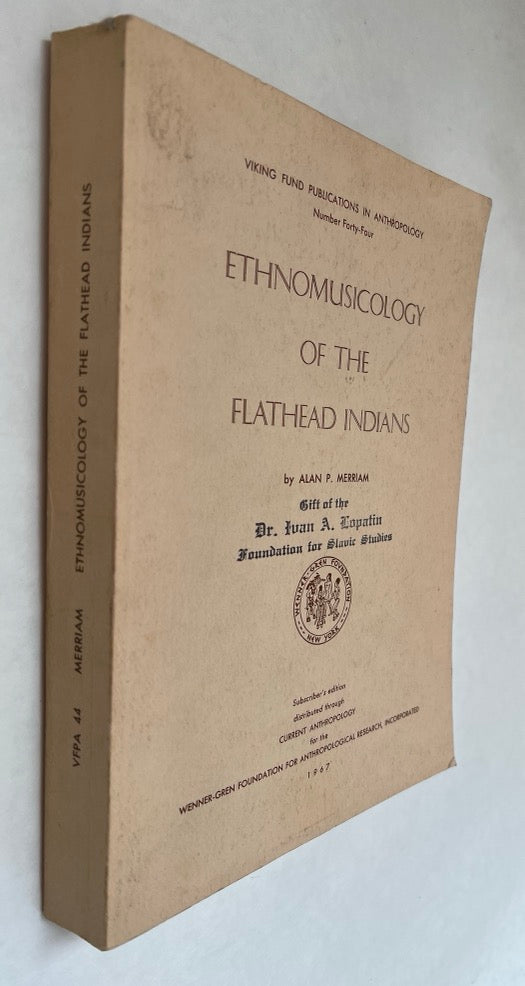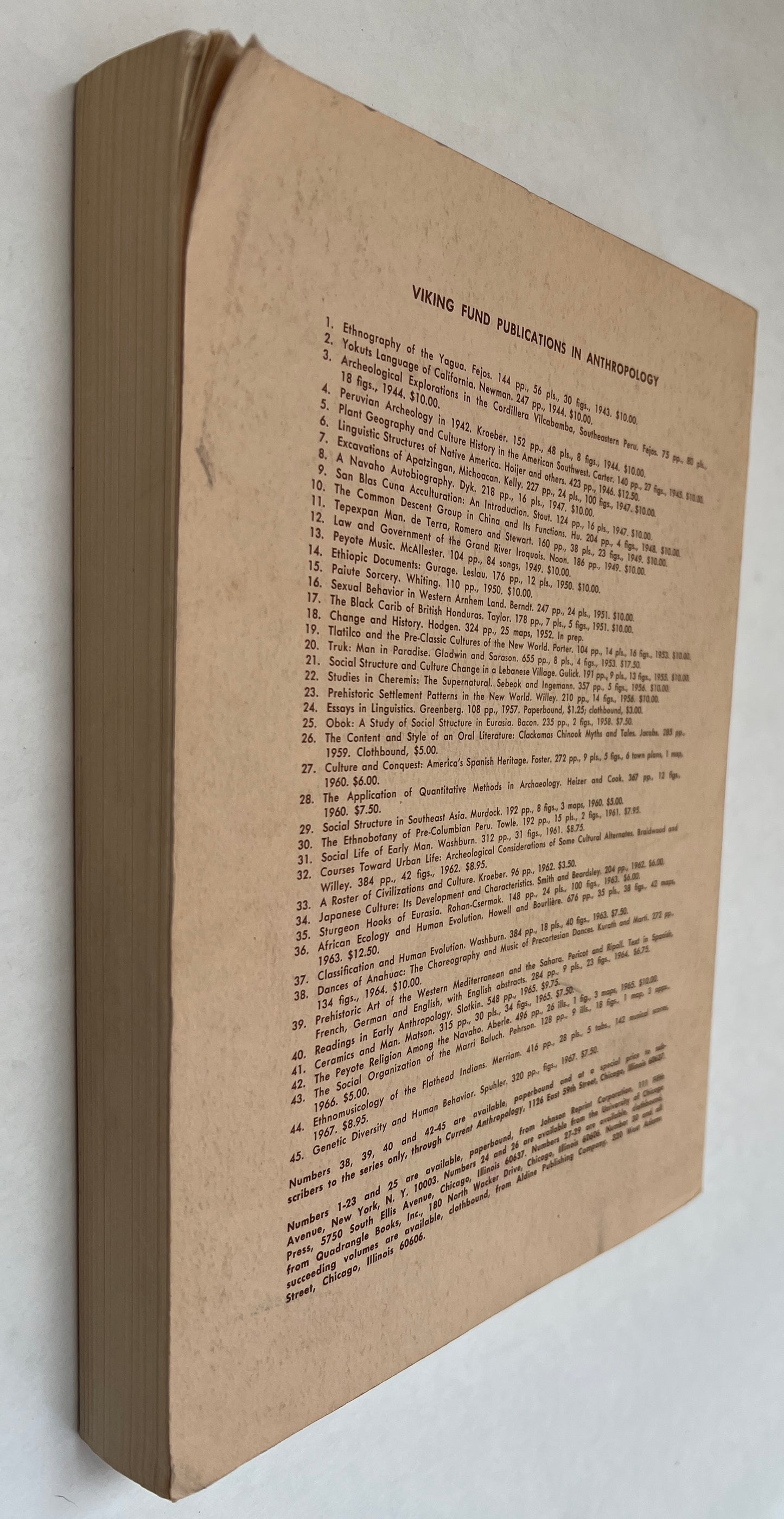Merriam, Alan P.,
Ethnomusicology of the Flathead Indians
Ethnomusicology of the Flathead Indians
受取状況を読み込めませんでした
New York: Wenner-Green Foundation for Anthropological Research, Inc, 1967. Subscriber's Edition. Quarto in page stiff paper wraps; xvi, 403 pages: music, 29 plates; 26 cm; bibliographical references (pages 365-378). Very good with donation stamp to cover; minor edge-wear. Binding very tight; leaves clean. Paperback.
Viking Fund Publications in Anthropology; no. 44. Contents: I. The ethnography of Flathead music. The sources of music -- Ideas of music and musicianship -- Sound instruments -- The uses of music -- Acculturation and culture change -- Some problems of interpretation -- -- II. Songs and analysis. The sample -- Analysis -- Some conclusions and further problems. / Salish; Kootenai
"The Salish peoples are indigenous peoples of the American and Canadian Pacific Northwest, identified by their use of the Salish languages which diversified out of Proto-Salish between 3,000 and 6,000 years ago. The term "Salish" originated in the modern era as an exonym created for linguistic research. Salish is an anglicization of Séliš, the endonym for the Salish Tribes of the Flathead Reservation. The Séliš were the easternmost Salish people and the first to have a diplomatic relationship with the United States so their name was applied broadly to all peoples speaking a related language." ¶ "Alan Parkhurst Merriam (1 November 1923 – 14 March 1980) was an American ethnomusicologist known for his studies of music in Native America and Africa. In his book The Anthropology of Music (1964), he outlined and develops a theory and method for studying music from an anthropological perspective with anthropological methods. Although he taught at Northwestern University and University of Wisconsin, the majority of his academic career was spent at Indiana University where he was named a professor in 1962 and then chairman of the anthropology department from 1966 to 1969, which became a leading center of ethnomusicology research under his guidance. He was a co-founder of the Society for Ethnomusicology in 1952 and held the elected post of president of that society from 1963 to 1965. He edited the Newsletter of the Society for Ethnomusicology from 1952 to 1957, and he edited the journal Ethnomusicology from 1957 to 1958. Merriam's initial work was based on fieldwork carried out in his native Montana and central Africa. He undertook extensive field research among the Flathead Indians of Montana in 1950 (for his PhD) and again in 1958. In Africa, he studied with the Songye and Bashi people of Zaïre (now the Democratic Republic of Congo) and Burundi in the 1950s and again in 1973. Later, Merriam proposed a tripartite model for the study of ethnomusicology, centering on the study of "music in culture." This model suggested that music should be studied on three analytic levels: conceptualization about music; behavior in relation to music; and analysis of music's sounds. In later works, Merriam amended his original concept of "music in culture" to "music as culture." Merriam died in the LOT Polish Airlines Flight 007 crash on March 14, 1980."—Wikipedia
Salish Indians. Music. Indians of North America. Music Indians, North American Peuples autochtones -- Amérique du Nord -- Musique. Flathead. Musique. Peuples autochtones -- Amérique du Nord. music (discipline) Music Indians of North America Salish Indians Indians of North America -- Music Salish Indians Flathead (Indiens) -- Musique. Music. Musique. Kootenai; Montana (Etats Unis) -- chants et musique.
共有




